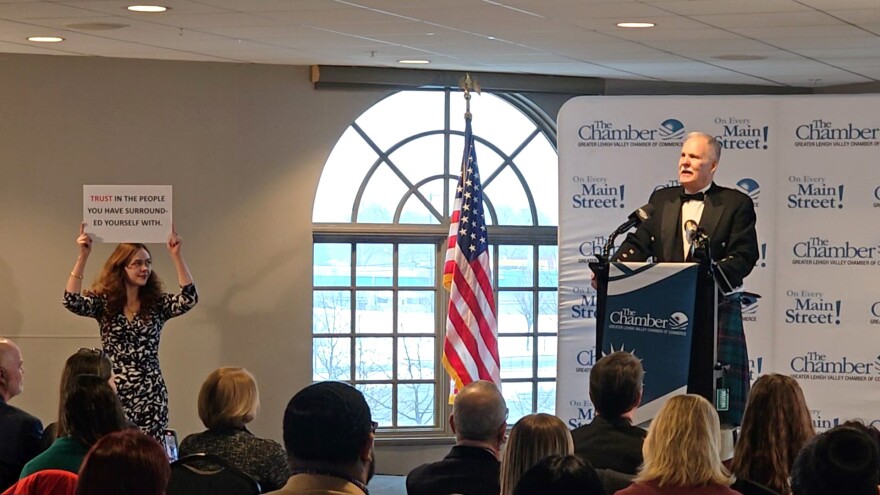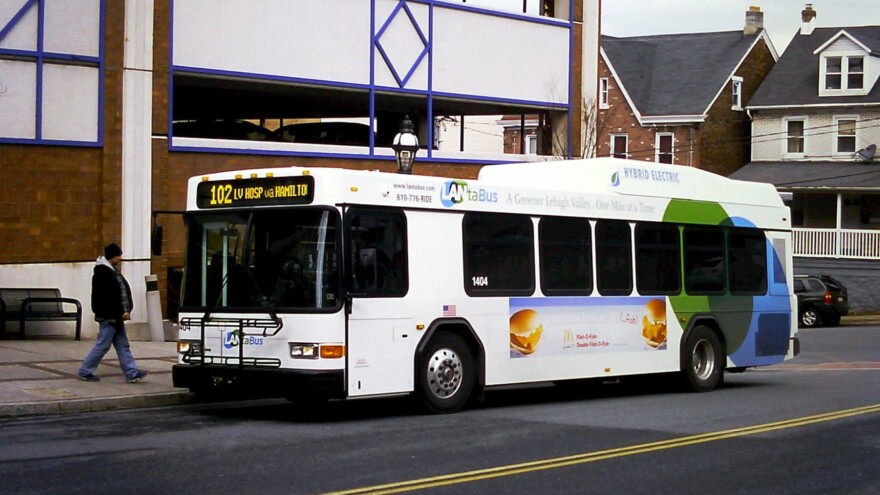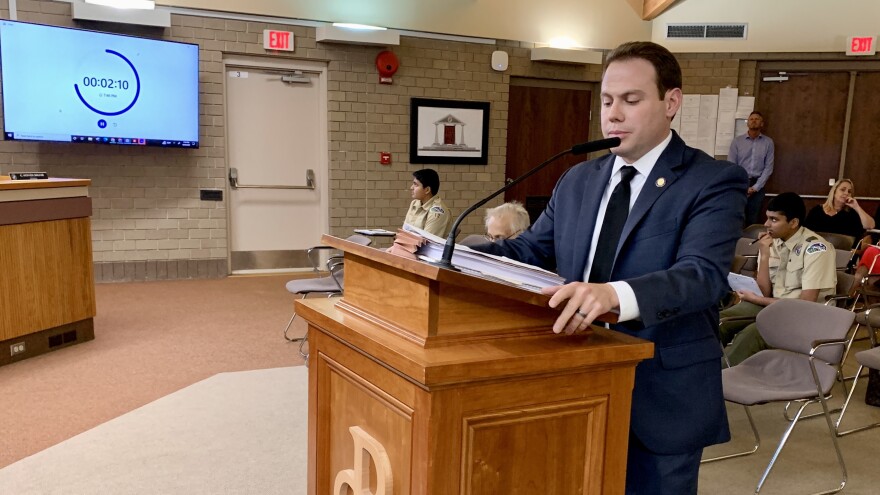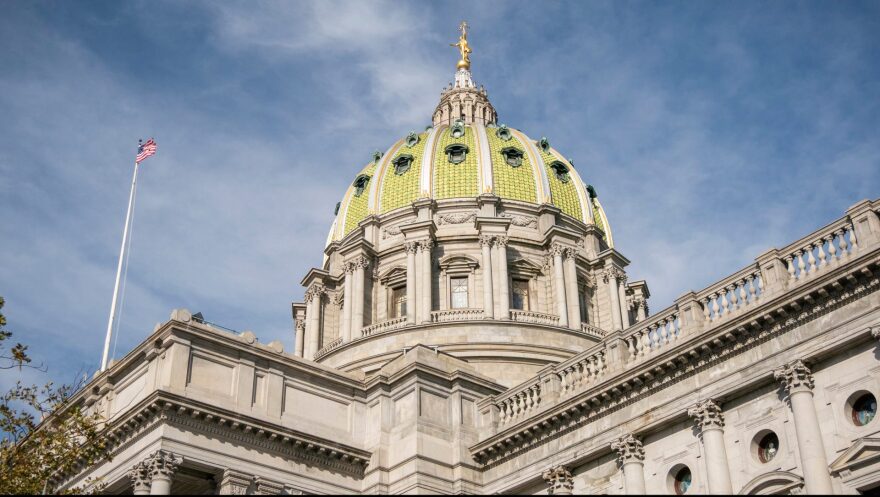BETHLEHEM, Pa. — After weeks of behind-the-scenes negotiations in Harrisburg, Lehigh Valley lawmakers offered little hope of a deal emerging soon in Pennsylvania's month-long budget impasse.
It's been six months since Gov. Josh Shapiro proposed a $51.4 billion spending plan that raised education spending and committed more funding to mass transit while creating new revenue streams by legalizing recreational marijuana and regulating skill games — the slot machine-like games commonly found in gas stations, fire halls and social clubs.
Republican lawmakers immediately balked at the 7.5% spending increase. While the Democratic-controlled House passed a reduced $50.6 billion package July 14, that's still proven too rich for the Republican-controlled Senate. The Senate has yet to pass a spending plan, and word emerged Wednesday that it will not reconvene until next week.
"I can’t in good faith sit here and say this is all going to work its way out."State Sen. Jarrett Coleman, R-Lehigh/Bucks
For weeks, Shapiro and Senate Majority Leader Joe Pittman, R-Armstrong/Indiana/Jefferson/Westmoreland, have called for patience as negotiations advance. However, skepticism has started to emerge as more time passes without a deal. This week, local senators said things may get more uncomfortable for local governments and nonprofits before a deal is struck.
"I can’t in good faith sit here and say this is all going to work its way out," said state Sen. Jarrett Coleman, R-Lehigh/Bucks.
When asked if he was optimistic a deal could emerge in the next few weeks, state Sen. Nick Miller, D-Lehigh/Northampton, took a lengthy pause before saying he didn't know.
"It's been a productive conversation, but we're just not there yet," Miller said.
Late budgets have become the norm in Harrisburg, but deals running a few days behind have seldom led to serious ramifications for school boards, nonprofits and county governments. Many of those organizations are dependent on state funding for their operations, but they typically aren't stressed until the state starts missing payments.
Now, six weeks after the budget was due, some state departments have written letters to their partners warning that their checks have gotten tied up in the ongoing negotiations over the budget.

Counties, school districts feeling the pinch
State government pays Lehigh and Northampton counties about 80% of their budgets to provide mandated services.
Lehigh County Executive Phil Armstrong said Lehigh County has had to use $10 million of its $25 million rainy day fund to maintain normal operations over the past month. Between the remaining fund and its tax collections, the county should be able to last into October or November before it reaches a crisis, he said, but not all counties maintain the recommended reserves, he said.
Armstrong said he's more concerned for nonprofit partners that offer services for mental health, juvenile delinquency prevention programs and other outreach. Unlike governments, many of those don't operate with significant cash reserves that can weather a lengthy budget impasse, he said.
"If you lose these programs, if we can’t fund them, it isn’t a matter of here’s the money in November. They don’t just come back. They’ve lost their people. They shut down their operations," Armstrong said.
"If you lose these programs, if we can’t fund them, it isn’t a matter of here’s the money in November. They don’t just come back."Lehigh County Executive Phil Armstrong, on nonprofit organizations
Pennsylvania went through a prolonged budget battle in 2015-16, when negotiations for a severance tax on gas drilling dragged out for nine months. Many poorer school districts resorted to taking out loans to pay their bills, including the Allentown School District. In its case, the state released needed funding days after the school board approved a $50 million loan, resulting in a total interest payment of $1,800, according to media reports.
Mackenzie Christ, a spokeswoman for the Pennsylvania School Boards Association, said in a statement this week that some districts have already started borrowing funds to cover their expenses. More may have to follow suit in order to make payroll and pay for expenses as time passes. Ultimately, taxpayers will bear the brunt of those decisions if lawmakers aren't able to come to an agreement, she said.
"Should the budget impasse last a few more weeks, school districts will miss their state subsidy payments for August, which includes basic education, transportation and property tax relief funds. Missing those payments will create problems for districts as the start of the school year gets closer," Christ said.
In Philadelphia, SEPTA is facing a more immediate deadline. Transit officials announced Wednesday that unless a budget deal is reached by Aug. 14, it must reduce services and hike its fares. Shapiro temporarily plugged a $153 million funding gap for the transit authority in November by transferring its funding intended for interstate projects, but it will face another crunch unless a deal emerges.
In the Lehigh Valley, LANTA Executive Director Owen O'Neill said last month that his organization will need to consider cutting its service by 20% to 25% by January if more state funding isn't secured.

Dragged out negotiations
The House passed its budget plan July 14 by a 105-97 vote that largely followed partisan lines. The package would increase public education spending by $930 million — an appeals court found in 2023 that a gap in its public education funding amounted to a constitutional violation — boost spending on state police by $118 million and dedicate almost $300 million more to public transit, according to the Pennsylvania Capitol-Star.
State Rep. Mike Schlossberg, D-Lehigh and the majority whip, pinned the delay on Senate Republicans earlier this week. Unlike the Democratic House, he said, they have not been able to pass their own vision of Pennsylvania for the year ahead. While he's not directly involved in budget negotiations, he said he's yet to hear a unified plan from Republicans about school spending or regulating skill games, key aspects of the budget proposal.
"I don’t know what they want. I don’t know if they know what they want," Schlossberg said.
Senate Republicans have rejected the House plan as too expensive, noting that it would exacerbate the state's structural deficit and wipe out reserves in the next two to three years unless new funding sources emerge. And while marijuana and skill games present opportunities for the state to collect new revenues, they've proven to be controversial subjects that have divided Harrisburg for years.
"I'm not confident either one will get done and should be holding up a state budget," Miller said.

Senate Republicans have expressed limited interest in raising mass transit funds. The lion's share of the funding goes to SEPTA, which serves the heavily Democratic Philadelphia region. While supporters contend that economic activity in southeast Pennsylvania funds road and bridge repairs across the state, that's done little to mollify skeptics like Coleman.
"LANTA should have to adjust its current day routes and demands. I shouldn’t be relying on folks in New Tripoli to fund routes for SEPTA," said Coleman, a budget hawk who's proposed eliminating the state gas tax, Pennsylvania's primary source of transportation funding.
"LANTA should have to adjust its current day routes and demands. I shouldn’t be relying on folks in New Tripoli to fund routes for SEPTA."State Sen. Jarrett Coleman, R-Lehigh/Bucks
Coleman said he would support calling in Shapiro's cabinet members before the Senate and taking testimony on where their budgets could be cut. He acknowledged that would likely drag out budget negotiations for weeks, but countered that his constituents elected him to ensure the state is being fiscally responsible.
"The reality is there are three parties, and we’re the minority," Coleman said, referring to Shapiro, the Democratic House and the Republican Senate. "The power of the purse in the budget is one of the main tools that we have to use."
Miller, on the other hand, said he would not support a budget that didn't dedicate more funding to improving school infrastructure.
Too many children find themselves in aging classrooms with lead paint and asbestos, let alone lacking modern heating and cooling systems equipped for Pennsylvania's seasons, he said.
The problem with aging schools is persistent in urban cores and rural communities, he said, leaving him to hold out hope that a deal might eventually emerge.


